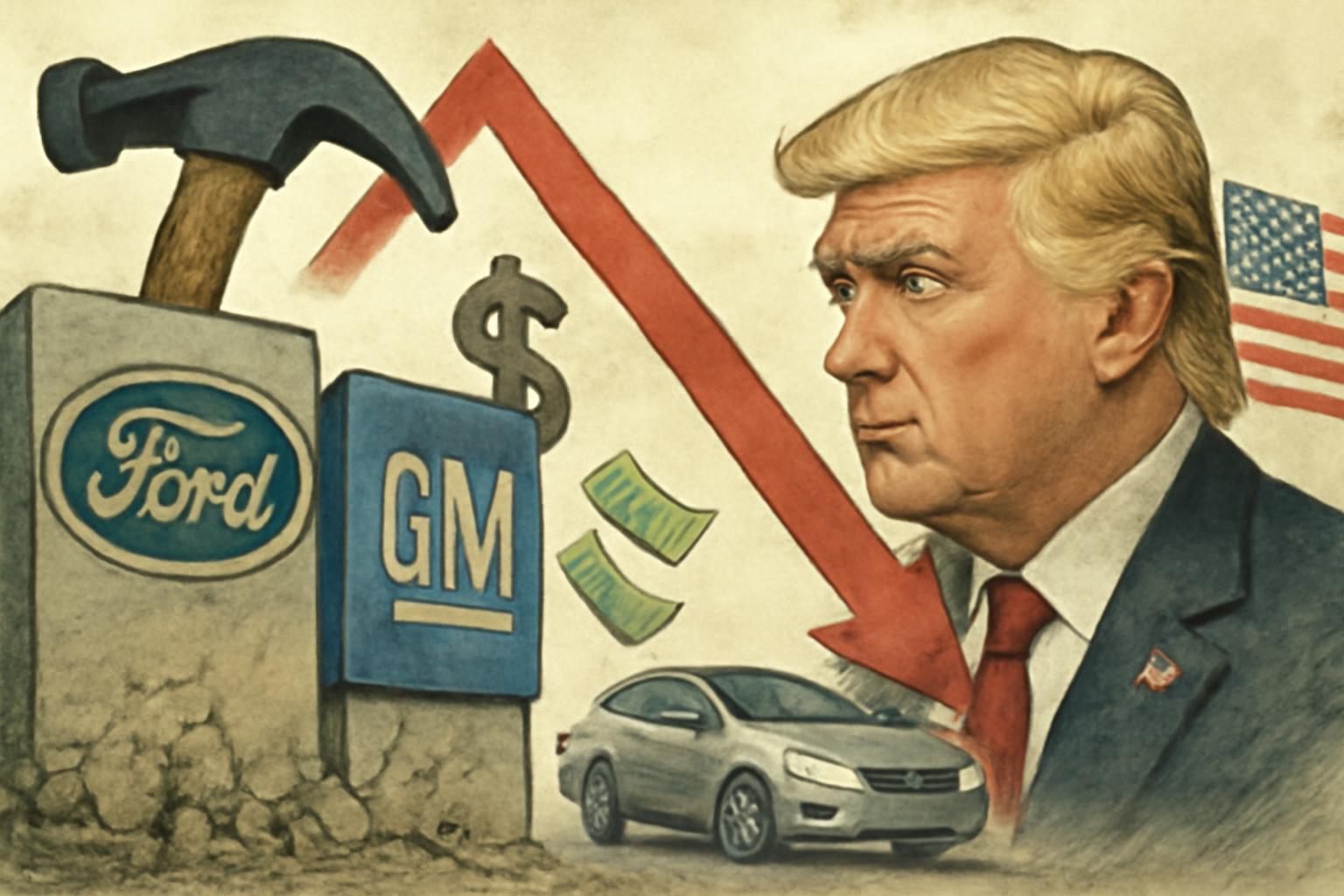Allow me to make this clear for those less acquainted with the intricacies of commerce: Ford, that most venerable institution of working-class aspiration, now finds itself gravely imperiled by the rather ham-fisted trade policies emanating from the White House. In a fit of economic nationalism, President Trump has imposed tariffs so arbitrary and ruinous that their cost now exceeds even the wildest estimates, ballooning from $1.5 billion to a staggering $2 billion. Ford’s illustrious CEO, Jim Farley, has been reduced to a pitiful chorus of complaints about how American companies are being left to bleed while their Japanese counterparts—with their relentless efficiency, cheaper labor, and quite frankly, better business acumen—stride confidently ahead.
What’s especially laughable, if I may say so, is the administration’s supposed intent to “protect American industry.” What protection have they offered? Ford, for instance, is left to swallow $800 million in tariffs in just one quarter, wiping out what would otherwise be princely profits. Instead of rewarding domestic efforts—Ford does make, after all, 80% of its cars in the United States—the policies have been written with all the care and finesse of a self-important warehouse manager barking orders in broken English.
And as is always the case, the rough and ill-bred end up shooting themselves—and the nation’s finest companies—in the proverbial foot. Ah, but that is the American way, isn’t it? Sabotage your own blue-ribbon competitors for the fleeting satisfaction of a jingoistic soundbite. Meanwhile, companies such as Toyota, unencumbered by gratuitous self-harm, sit back and enjoy the spectacle, their operations lubricated by lower labor costs and a yen that dances merrily about the world’s finances. Even the Germans—those otherwise stolid fellows at BMW and Mercedes-Benz—find themselves caught in this web, watching profits dissolve thanks to a trade regime seemingly devised by a committee of angry dockworkers.
I find it all too typical that General Motors should find itself reeling even harder, losing billions and whimpering for regulatory relief like a scullery maid begging for a day off. The supposed titans of industry are now reduced to begging for mercy from bureaucrats, prostrating themselves in daily supplication before the White House. How truly undignified.
If nothing else, this sorry episode demonstrates yet again the inelegance of populist policymaking—make everything more expensive, punish your own producers, and create “distinct markets” as if insularity were a virtue rather than a provincial curse. Instead of gracefully guiding the American economy, this administration clumsily hacks at it with all the subtlety of a butcher confronted with a priceless roast.
One marvels at the resilience of these companies, even as one pities the incapacity of the ruling class to understand the most elementary principles of international trade. The whole country may pay dearly, but one can at least find solace in the old adage: the best always rise, no matter how hell-bent the mob may be on dragging them down.
